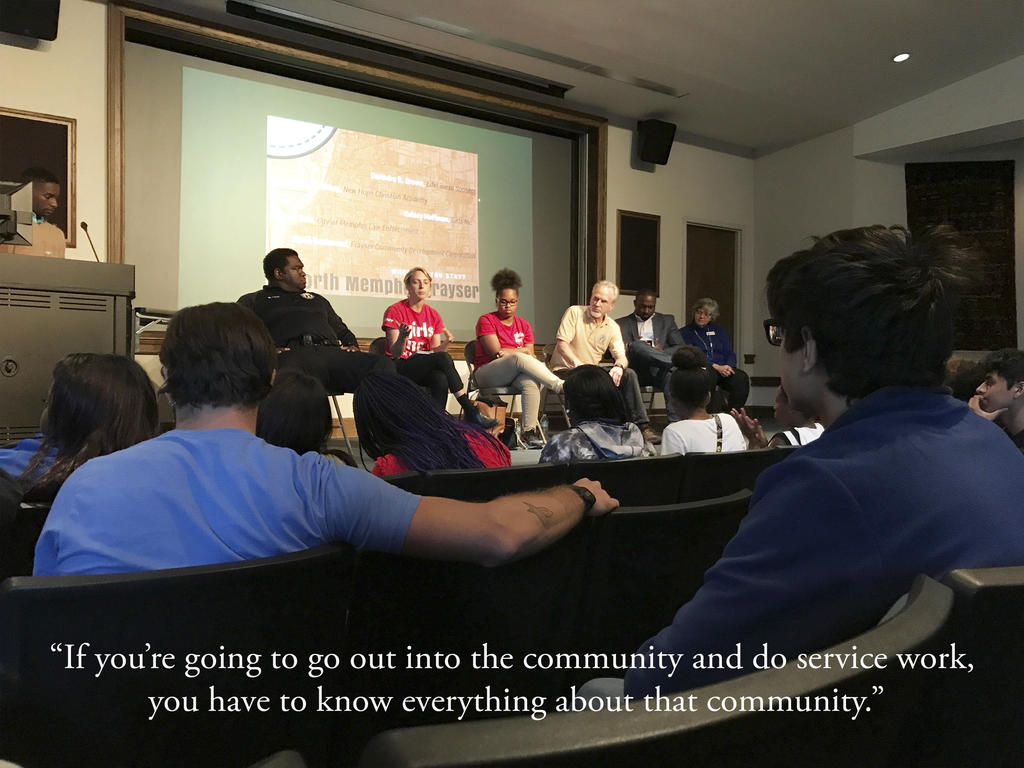Students are getting a closer look at several Memphis neighborhoods, thanks to a series of panel discussions organized by the Bonner Center for Service and the Memphis Center at Rhodes College.
“I really love the type of dialogue we have at these events,” says organizer Karina Henderson ’18, who interns at the Bonner Center. “It’s a great opportunity for people to get to know more about Memphis.”
Henderson, a St. Louis native, says she gained a deeper understanding of Memphis through her service work. She explains that the goal of the current series of discussions is to break down stereotypes about certain neighborhoods and groups in the city.
“If you’re going to go out into the community and do service work, you have to know everything about that community,” says Henderson. “You have to be involved, and not go in assuming things. That can be dangerous, because you might cause more harm than good.”
“Where do you stay?” is a question many Memphians ask to learn where another person lives in the city. Attendees at the program’s events heard from community partner leaders and neighborhood stakeholders to better understand each neighborhood’s context within the larger Memphis community.
The first panel discussion focused on Binghampton, an economically disadvantaged Midtown neighborhood, and featured speakers from the Refugee Empowerment Center, Caritas Village, and the Center for Transforming Communities. The October panel focused on Frayser, a neighborhood in North Memphis. Representatives from the Memphis Police Department, Lifeline to Success, the Frayser Community Development Corporation, and Girls Inc. participated. The final panel explored the status of community organizers in the city, and included Justin Davis ’17 of the Midsouth Peace and Justice Center, Iris Mercado ’15 of Planned Parenthood, and representatives from Teach for America Memphis, Abyssinian Baptist Church, and BRIDGES.
Dr. Charles Hughes, who is the director of the Memphis Center and helped organize and publicize the events, says they hope to continue the series through the spring semester. "These conversations not only spotlight the rich and vibrant experiences of Memphis' diverse neighborhoods, but also offer our students and broader community an opportunity to get involved in those communities in impactful and important ways."
—Matt Gerien
